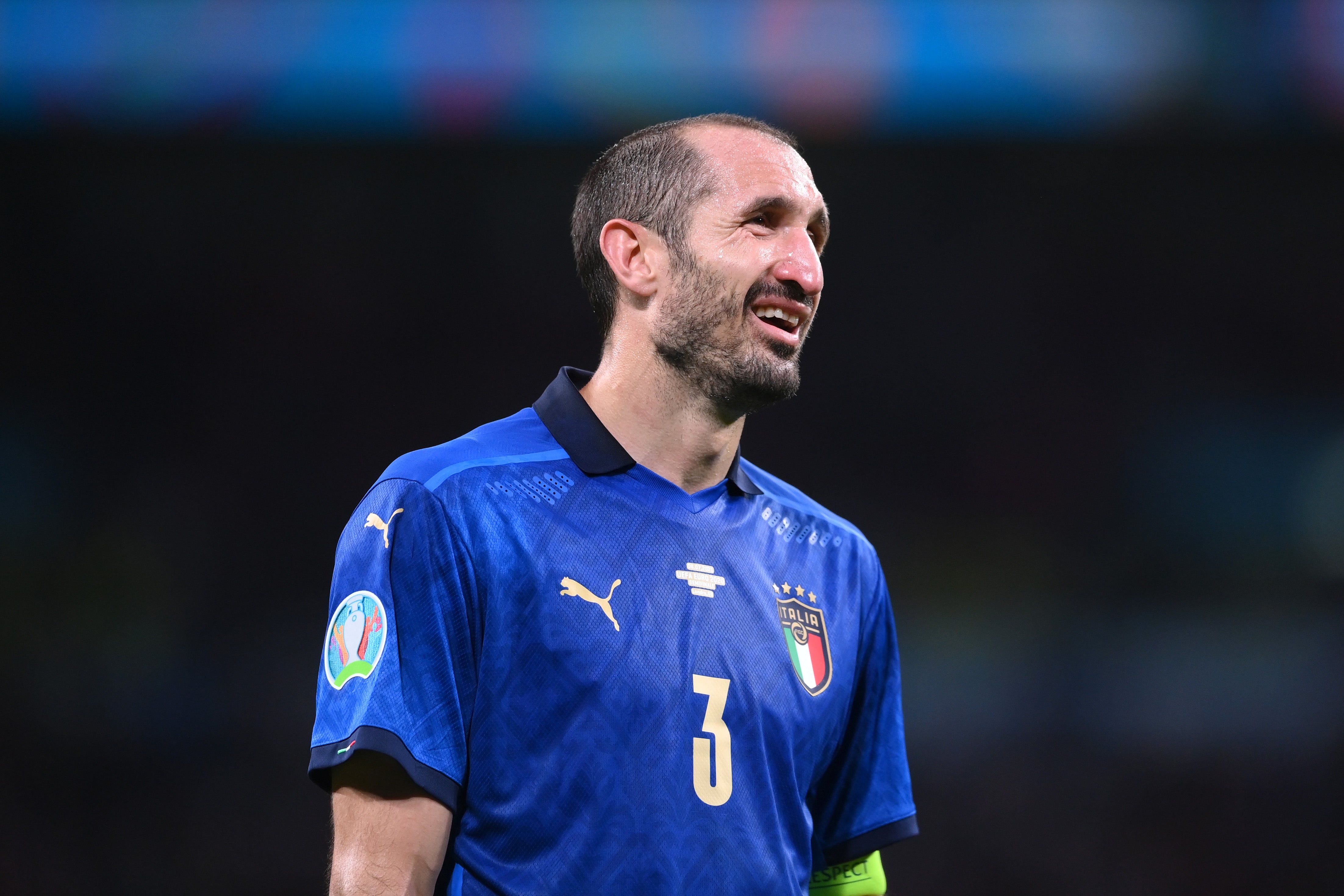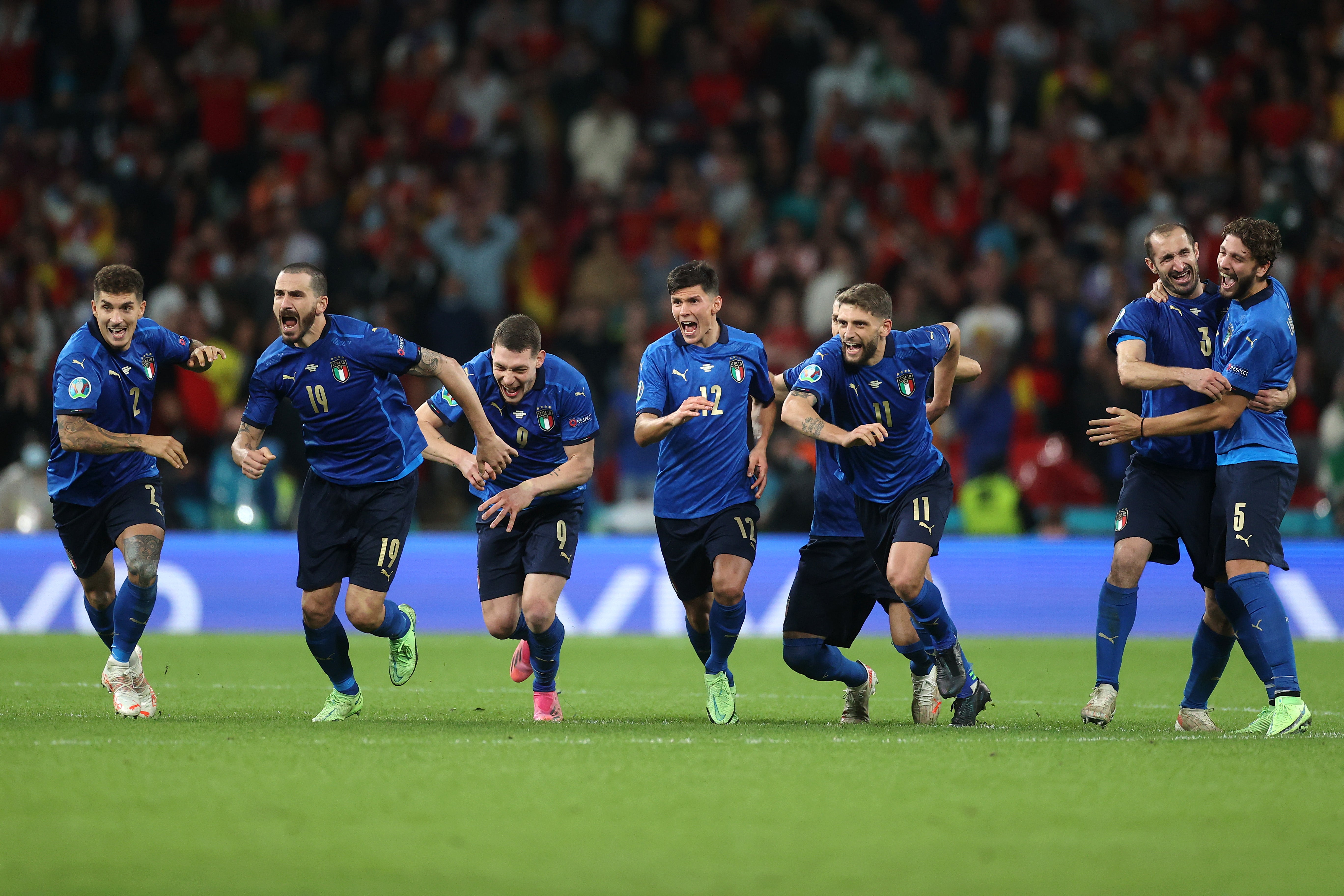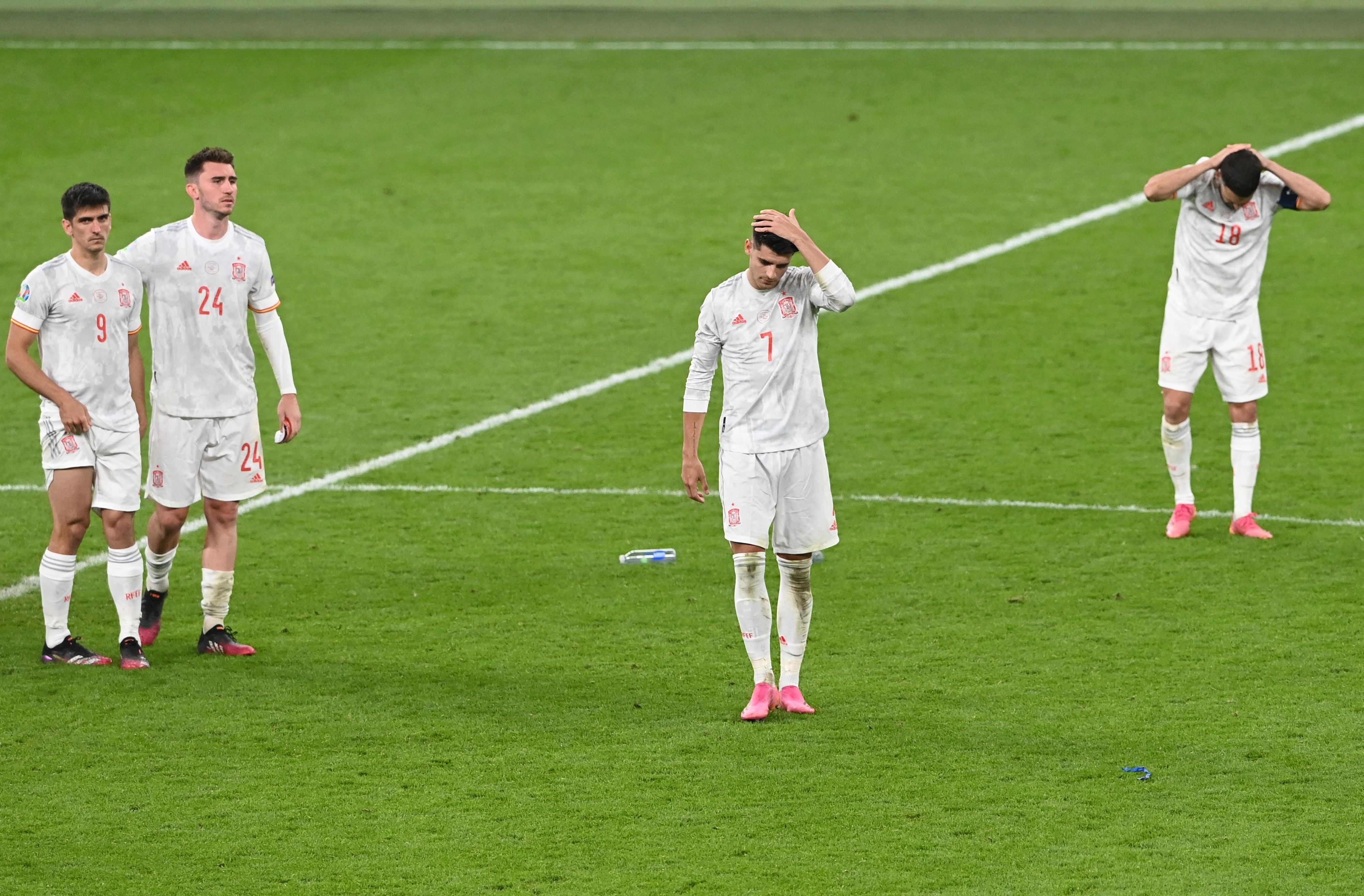Giorgio Chiellini embodies Italy’s never-say-die spirit in battle with familiar foe Alvaro Morata
The Juventus defender relished the battle against Spain to inspire the Azzurri’s progress to the final in what is likely to be his last major tournament
Your support helps us to tell the story
From reproductive rights to climate change to Big Tech, The Independent is on the ground when the story is developing. Whether it's investigating the financials of Elon Musk's pro-Trump PAC or producing our latest documentary, 'The A Word', which shines a light on the American women fighting for reproductive rights, we know how important it is to parse out the facts from the messaging.
At such a critical moment in US history, we need reporters on the ground. Your donation allows us to keep sending journalists to speak to both sides of the story.
The Independent is trusted by Americans across the entire political spectrum. And unlike many other quality news outlets, we choose not to lock Americans out of our reporting and analysis with paywalls. We believe quality journalism should be available to everyone, paid for by those who can afford it.
Your support makes all the difference.Before every kick-off, Italy’s players line up, clasp each other around the shoulders and scream the words “siam pronti alla morte” into the sky above them; translation: “we are ready to die”. There are few better anthems and few more consistently stirring renditions in international football’s grand repertoire, but you are always left with the impression that one player means that particular line more than the rest.
And for Giorgio Chiellini, it will have taken on a different resonance during this tournament. “I’m here with great enthusiasm to experience what will probably be my last event with the national team,” he admitted before Euro 2020 started. That’s not a declaration of an imminent international retirement, but it’s close. A new contract with Juventus is imminent, and the next World Cup may only be 18 months away, but Chiellini is 37 in August and will be 38 by the time of Qatar. His time is coming.
This summer is the steady but irreversible dying of the light. The strength, the cunning, the spirit and the skullduggery are all still there – as are the scars of battle – but the minor flaws are exaggerated now. He has lost a yard of pace that was never there to begin with. The modern game’s many demands of its centre-half are hard to meet 21 years into your professional career. The mind is willing but the body is slowly, gradually, incrementally but increasingly becoming unable.
One advantage that takes longer to dim, though, is the psychological hold Chiellini has over his most familiar foes, and few players appear as though they are as susceptible to such binds as Alvaro Morata. Morata knows Chiellini well, of course, from Juventus training sessions past and present. The Spain striker once described facing him in training as like “being put in a cage with a gorilla and you have to steal his food”. Winning a duel one-on-one in the box with him was “impossible”, he said.
Perhaps that was part of Luis Enrique’s thinking when he made the surprise decision to drop Morata to the substitutes’ bench for what would be a frantic, full-blooded semi-final. Gerard Moreno was overlooked too. Spain would instead play without a recognised centre-forward. It worked, in a way, judging by how Chiellini and his partner Leonardo Bonucci – playing their 325th career game together – struggled to cope with the varied movement of Spain’s attack.
There was one problem. They could not finish. Dani Olmo, the focal point, has now had the most shots of any player in this tournament without scoring. Chiellini blocked one of them, around 25 minutes in, but was powerless to prevent Olmo from striking again on the rebound. Gianluigi Donnarumma saved without breaking sweat. Spain’s profligacy, a theme throughout this tournament, was then only thrown into relief at the start of the second half by the quality of Federico Chiesa’s finish for the breakthrough.

Never mind that, though, because with a single goal lead to protect, we were now entering real Chiellini hours. Moments after celebrating Chiesa’s opener by securing several members of the Italian bench in chokeholds, he was equally pleased to concede a corner. A cross was then hooked clear first-time, as though he has done it every day of his life for the last quarter of a century or more, because – let’s face it – he probably has. He was enjoying himself.
Morata, at the very same time, was being readied on the touchline. He’d also heard what you said. He had read your tweets. He had seen your group chat. He kept the receipts, too, and decided all of a sudden that he was not going to put up with it any longer. And also he also knew that though Chiellini may be a bit like a silverback, he is also like King Kong with the fighter planes. He’s easier to beat if you team up.
After another 18 minutes – and who knows how long with the ball actually in play – Italy’s stout and strong rearguard was undone. Morata was running directly at Chiellini, and perhaps that quote about being “impossible” to beat one-on-one came to mind. With Olmo as a willing sounding board, he played an immaculate one-two which took his training ground foe out of the game and put him through on goal. The finish was sublime. The celebration – with a wide and wild-eyed stare down the camera lens – felt significant.

You were tempted, in those strange, disorienting moments to wonder whether this would be Morata’s day after all. Whether this might even be his tournament too. Whether he may now finally have the better of his long-time team-mate. In the closing stages of the second half and then in extra time, he stood a little taller. His head was raised. His chest puffed out. He looked like the striker he was always meant to be, the one that Chiellini and many other team-mates know he can be. A second goal felt possible.

But instead, there would be penalties. And it’s not that Morata does not like penalties – in normal play, he has only missed two of the 13 that he has taken throughout his career – but as he stepped up for Spain’s fourth kick of the shoot-out, there was that look. You know the one. The one of resignation. The one which suggests knowledge of death waiting at the door, and a fear of it too. Now, contrast that with Chiellini.
Perhaps the comparison is unfair. Italy’s captain did not take one, after all – that was left to younger, fresher legs – but the task of leading his teammates through that spot of psychological warfare at 12 yards was just as important. He spent the coin toss laughing, joking, arguing, hugging his counterpart Jordi Alba and, most of all, making absolutely sure that Italy would have the advantage of kicking first. When it was underway, he was at the centre of the huddle, encouraging those who had volunteered, willing them to face down the fear.
It could all have been over for Chiellini after this shoot-out. This could effectively have been the end of his international career. He might have spent his evening staring into the abyss that Morata and his Spain team-mates are instead looking down. But that is nothing new. Every time Chiellini has played for the Azzurri, he has been ready to die. Siam pronti alla morte. But not yet. Not just yet.
Join our commenting forum
Join thought-provoking conversations, follow other Independent readers and see their replies
Comments